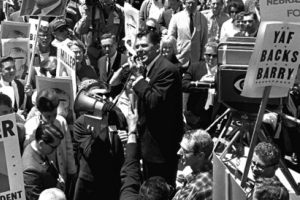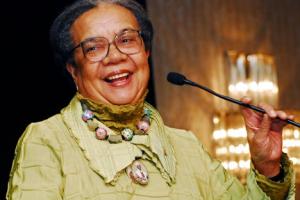‘Historic’: How Mexico’s Welfare Policies Helped 13.4 Million People out of Poverty
The Guardian
 Beginning in 1964 and stretching through today, conservative leaders systematically undermined the programs that shaped Johnson’s War on Poverty, frequently deploying racist and sexist arguments to take away public assistance from the poorest Americans. Their rhetoric didn’t directly undo these social programs, but it chipped away at their foundation and altered Americans’ perceptions about the proper role of government.
Beginning in 1964 and stretching through today, conservative leaders systematically undermined the programs that shaped Johnson’s War on Poverty, frequently deploying racist and sexist arguments to take away public assistance from the poorest Americans. Their rhetoric didn’t directly undo these social programs, but it chipped away at their foundation and altered Americans’ perceptions about the proper role of government.
 Forty years after founding the Children’s Defense Fund, which advocates for federal and state resources for children, Edelman is still at work in the fund’s red brick building on E Street NW, displaying at 74 the same passion she had in 1967, when she was a 27-year-old civil rights attorney leading Sen. Robert F. Kennedy through the Mississippi Delta.
Forty years after founding the Children’s Defense Fund, which advocates for federal and state resources for children, Edelman is still at work in the fund’s red brick building on E Street NW, displaying at 74 the same passion she had in 1967, when she was a 27-year-old civil rights attorney leading Sen. Robert F. Kennedy through the Mississippi Delta.
Spread the word